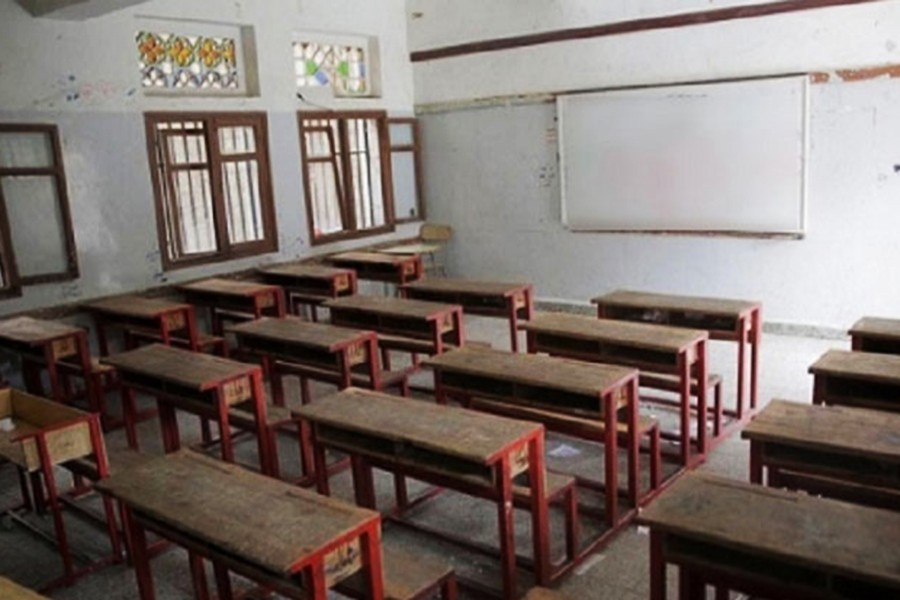
Published :
Updated :

Schools and colleges which were scheduled to resume classes from June 30 cannot open before July 31. It is the latest extension of the countrywide school closure. Now that a fresh Covid-19 shutdown has been in force, students attending online classes are found to be linked to their respective teachers, with the students glued to their smart-phones or desktops. This exercise has been on for more than a year, initially on a limited scale. Lockdown extensions are likely if the pandemic doesn't subside. In that case, students, especially those of schools, may have to brace for more online 'class attendance' from home. And students without online have to bear with no-school days.
The education sector in the country has never thought of passing through such a period of ordeal. Out of the fear of falling victim to the highly communicable disease like Covid-19, the teenage students have had to dissociate from education due to the closure of schools. The same scourge afflicted higher-grade school and college students. But due to their being in the growing stage that causes restlessness in their nature, it becomes hard to bring them to the study table at home. For the affluent families, it is equally hard to make them concentrated on the online lessons. Given the global fluctuations in the caseload and fatalities related to the pandemic, the phases of school closure extensions are fast becoming a reality; Bangladesh being no exception. With this in mind, it is imperative for the country that it maximise the use of the online classes. Or else, a bleak future might be awaiting the country's students, especially those at primary and secondary levels. The fact cannot but give rise to tormenting worries for the guardians, teachers and the policymakers.
Despite the ample possibilities of the vaccines' arrival from different countries, Covid-19 cannot be made to disappear anytime soon. For various reasons, children, adolescents and young adults are feared to remain vulnerable to the pandemic for some more time. As education experts view it, it is the child and teenage students who warrant efforts to make them engaged in even the online classes. The medium is otherwise filled with fun. Then there are few reasons why students will not be attracted to it. Educationists feel that prolonged detachment from classmates, an insidious boredom and void and the compulsory attendance of a different type of class make many students feel averse to online lessons.
It is time to assess the online class's benefits. In case of deficiencies, the whole process should be recast suiting the pressing requirements. With the classes on, time is also ripe for assessing the teachers' performance. It's because the attraction to or aversion for these virtual classes is related to the respective class teachers' acceptability to students. Moreover, apart from students, many guardians have brought the online exam system into question. The standards ensuring fair merit judgement have been found wanting. Besides, a most vital aspect of online classes is determining the percentage of schools having this virtual privilege. Bangladesh can ill afford to just flaunt a digital education system in place. Not putting it to work fruitfully will mean frittering away a time-befitting gift of science.


 For all latest news, follow The Financial Express Google News channel.
For all latest news, follow The Financial Express Google News channel.